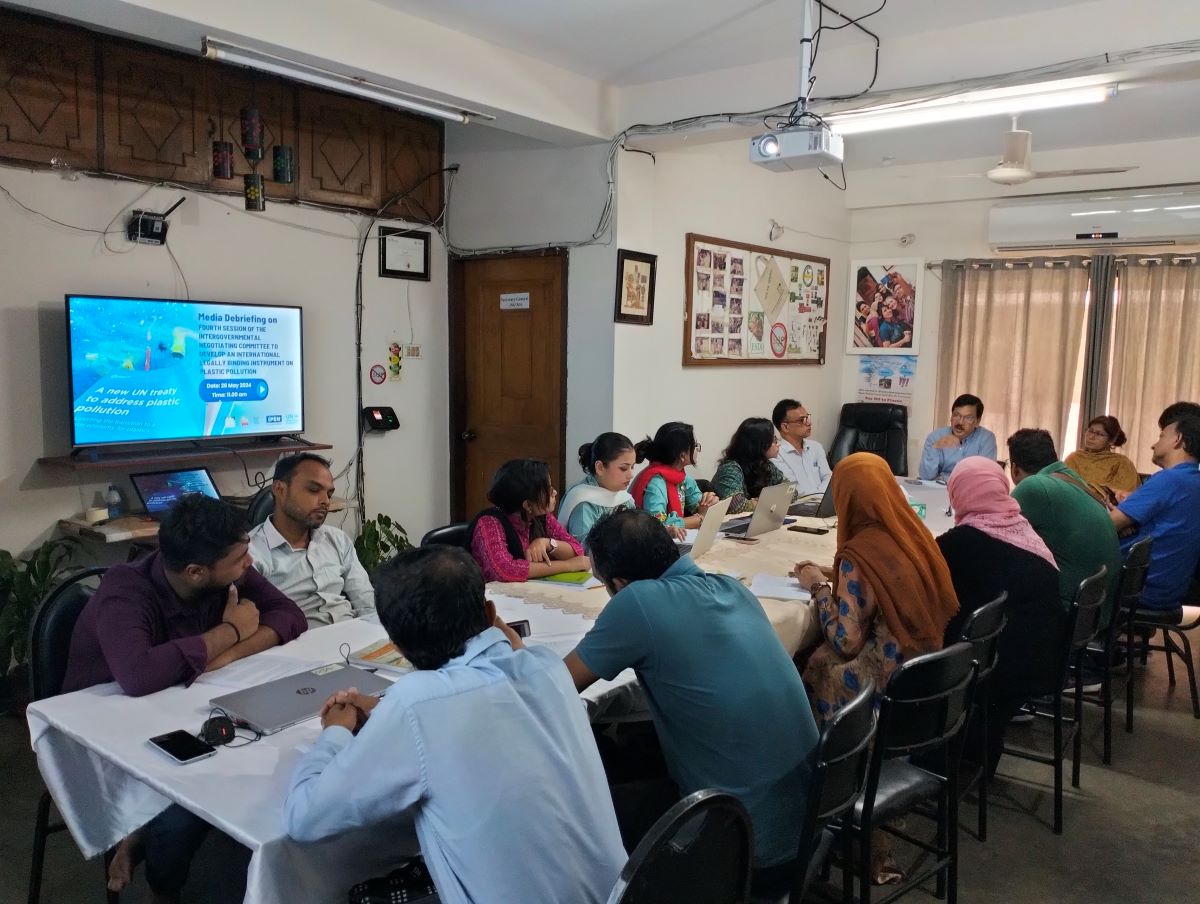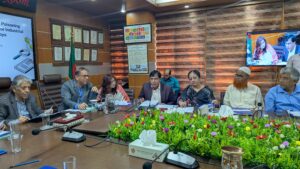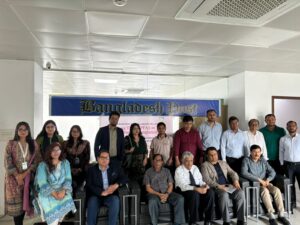On May 26, 2024, ESDO hosted a crucial post-dialogue on the fourth Intergovernmental Negotiating Committee (INC-4) on the global plastic treaty at its head office. The debriefing focused on Bangladesh’s statement and the global consensus on a new agreement to tackle plastic pollution and marine litter.
Bangladesh’s Position: Strong support for Extended Producer Responsibility (EPR) and sustainable fishing gear management.
Emphasized challenges for downstream countries like Bangladesh in achieving fair and equitable solutions. Called for regional cooperation, given the transboundary nature of plastic pollution.
Concerns and Solutions: Need for a legally binding international framework to address plastic pollution, considering health impacts and environmental costs. Advocacy for comprehensive policies that include environmental health considerations.
Collaborative Efforts:
UNIDO’s ongoing project on plastic policy frameworks and sustainable consumption. Industry initiatives for resource efficiency, design for the environment, and professional health and safety.
Civil Society and Government Coordination: Despite limited government representation, Bangladesh voiced strong concerns about the plastic burden on downstream countries. Civil society’s coordinated efforts to support Bangladesh’s position in international negotiations.
Challenges Ahead: The Influence of Petrochemical Companies and the need for stronger civil society measures. Delays and challenges in reaching a consensus, with many unresolved issues still on the table.
Next Steps:
Bangladesh must continue to prepare, engage with other countries, and seek support to ensure significant progress in future negotiations. The collective effort of the government, civil society, and the international community is vital to address the global plastic crisis.



